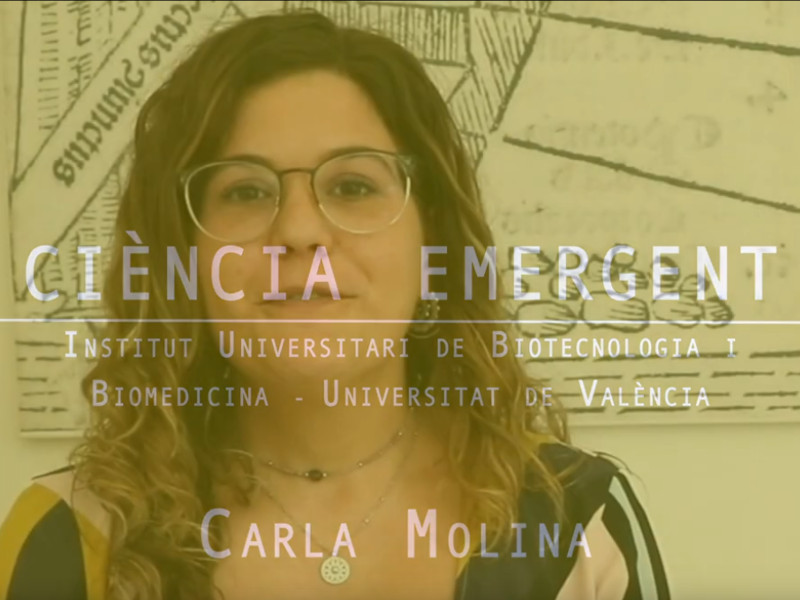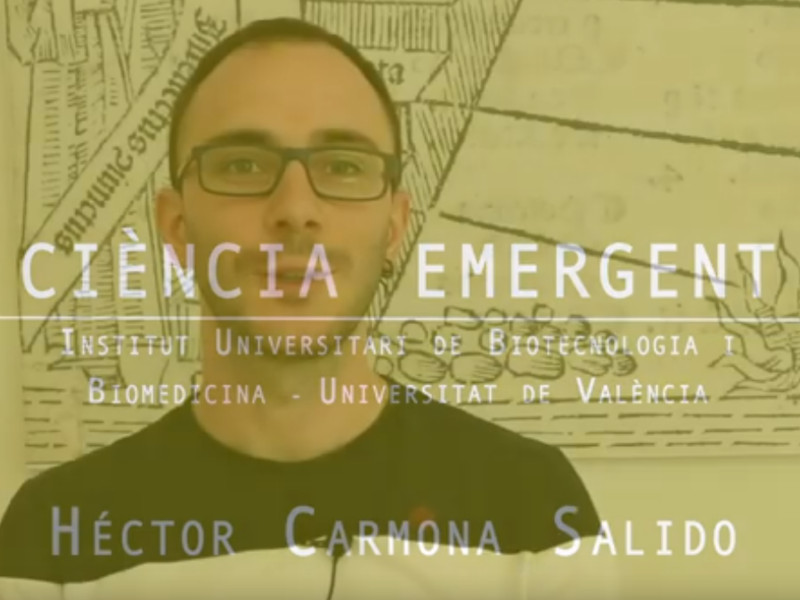Carla Molina Sorribes and Héctor Carmona Salido, two PhD students from our group, have participated in the Emerging Science project of the Scientific Culture and Innovation Unit of the Universitat de València, where they have explained what their doctoral thesis consists of.
Emerging Science is a project of the Scientific Culture and Innovation Unit of the University of Valencia funded by the Spanish Foundation for Science and Technology and the Ministry of Science and Innovation. The aim of this new phase of the project is to raise awareness of different aspects related to the development of scientific careers, as well as the different areas of research and topics that are being investigated in the laboratories belonging to the University of Valencia and the Institute of Molecular Science (ICMol).
Carla Molina Sorribes
The aim of Carla Molina Sorribes's thesis is the development and implementation of strategies to prevent vibriosis caused by Vibrio vulnificus in fish farms. As V. vulnificus is a zoonotic pathogen, it is important to control the disease in animals in order to reduce the likelihood of transmission of the pathogen to humans. These prevention strategies also allow us to minimise economic losses and the use of antibiotics.
In this doctoral thesis, two approaches have been selected. One of them is the feeding of animals with diets containing immunostimulant products previously tested in the laboratory. The second approach is to vaccinate them. There is a vaccine patented by the research group that works very well against V. vulnificus. Therefore, one of the aims of the work is to improve it by allowing it to confer protection not only against V. vulnificus, but also against other pathogenic species of fish. To achieve this, it has focused on the antigens that are common among the different species. These are encoded in a plasmid that can be transferred by conjugation. These are two outer membrane proteins that confer resistance to innate immunity. By generating anti-sense in front of them, this system is blocked, preventing the bacterium from being eliminated.
Héctor Carmona Salido
In this video, Héctor Carmona Salido explains, from his experience as a bioinformatician, his role in the Pathogens in Aquaculture group. This group, led by Dr. Carmen Amaro, is in charge of the study of those bacteria capable of causing diseases in both humans and animals. This is very important, because with climate change, these bacteria are becoming increasingly abundant and dangerous. Specifically, in his thesis, Héctor studies those genes (virulence factors) that allow Vibrio vulnificus to cause vibriosis. Furthermore, he stresses the importance of disseminating this knowledge to the general public and contributing to the One Health concept, which seeks to achieve human, animal and environmental well-being.












